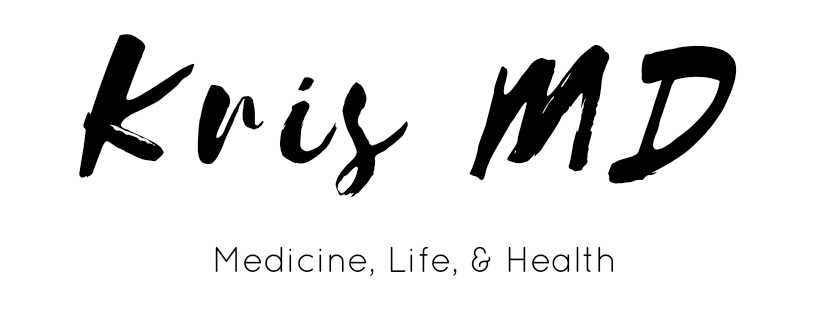It seems that ever since that advent of dexmedetomidine, propofol has been pushed aside as the sedation drug of choice for sedation during and post-open heart surgery. But is the literature changing with the effects of dexmedetomidine on rates of atrial fibrillation?

In patients older than 60 years with low baseline risk of postoperative delirium admitted to the ICU after cardiac surgery and extubated within 12 h of ICU admission, a post-extubation nighttime dose of dexmedetomidine may reduce the incidence of delirium on postoperative day one.
Nighttime dexmedetomidine for delirium prevention in non-mechanically ventilated patients after cardiac surgery (MINDDS): a single-centre, parallel-arm, randomised, placebo-controlled superiority trial. The Lancet, eClinicalMedicine: Volume 56, 101796, February 2023.
The study results showed no statistically significant difference between both groups with regard to age and body mass index. Group P patients were more associated with lower MAP and HR than Group D patients. There was no statistically significant difference between groups with regard to ABG findings, oxygenation, ventilation, and respiratory parameters. There was significant difference between both the groups in midazolam and fentanyl dose requirement and financial costs with a value of P < 0.05.
From Sedation Effects by Dexmedetomidine versus Propofol in Decreasing Duration of Mechanical Ventilation after Open Heart Surgery. Ann Card Anaesth. 2018 Jul-Sep; 21(3): 235–242.
Meta-analysis studies on the use of DEX during cardiac surgery also showed a reduction in the risk of atrial fibrillation, ventricular tachycardia and cardiac arrest [7, 12].
Our findings suggest that DEX may reduce short term postoperative pulmonary complications, time on mechanical lung ventilation, ICU and hospital stay following CABG surgery compared to propofol.
From Comparison between dexmedetomidine and propofol on outcomes after coronary artery bypass graft surgery: a retrospective study. BMC Anesthesiology volume 22, Article number: 51 (2022).
When compared with propofol, dexmedetomidine sedation reduced incidence, delayed onset, and shortened duration of POD in elderly patients after cardiac surgery. The absolute risk reduction for POD was 14%, with a number needed to treat of 7.1.
From Dexmedetomidine versus Propofol Sedation Reduces Delirium after Cardiac Surgery: A Randomized Controlled Trial. Anesthesiology February 2016, Vol. 124, 362–368.
Dexmedetomidine did not significantly impact ICU length of stay compared with propofol, but it significantly reduced the duration of mechanical ventilation and the risk of delirium in cardiac surgical patients. It also significantly increased the risk of bradycardia across ICU patient subsets.
From Outcomes of dexmedetomidine versus propofol sedation in critically ill adults requiring mechanical ventilation: a systematic review and meta-analysis of randomised controlled trials. British Journal of Anaesthesia, 129 (4): 515e526 (2022).
The use of dexmedetomidine for sedation after cardiac surgery was associated with a lower incidence of atrial fibrillation and hence decreased the duration of intensive care stay.
Dexmedetomidine versus propofol in reducing atrial fibrillation after cardiac surgery. Egyptian Journal of Anaesthesia, 38:1, 72-77.
This trial demonstrated that dexmedetomidine sedation may be better able to improve microcirculation in cardiac surgery patients during the early postoperative period compared with propofol.
Dexmedetomidine Versus Propofol Sedation Improves Sublingual Microcirculation After Cardiac Surgery: A Randomized Controlled Trial. Journal of Cardiothoracic and Vascular Anesthesia, Vol 30, No 6 (December), 2016: pp 1509–1515.
Adding low-dose rate dexmedetomidine to a sedative regimen based on propofol did not result in a different risk of in-hospital delirium in older patients undergoing cardiac surgery. With a suggestion of both harm and benefit in secondary outcomes, supplementing postoperative propofol with dexmedetomidine cannot be recommended based on this study.
Propofol plus low-dose dexmedetomidine infusion and postoperative delirium in older patients undergoing cardiac surgery. British Journal of Anaesthesia Volume 126, Issue 3, March 2021, Pages 665-673.
Dexmedetomidine infusion, started at anaesthetic induction and continued for 24 h, did not decrease postoperative atrial arrhythmias in patients recovering from cardiac surgery. Dexmedetomidine also worsened delirium, although not by a significant amount, possibly by provoking hypotension. Dexmedetomidine worsened kidney injury, but again not by a significant amount. The incidence of persistent surgical pain was similar in each group. Dexmedetomidine should be used cautiously in cardiac surgical patients with attention to preventing hypotension, and should not be given in expectation of reducing atrial fibrillation or delirium.
Dexmedetomidine for reduction of atrial fibrillation and delirium after cardiac surgery (DECADE): a randomised placebo-controlled trial. The Lancet Volume 396, Issue 10245, 18–24 July 2020, Pages 177-185.
Dexmedetomidine-based sedation resulted in
Propofol-Based Versus Dexmedetomidine-Based Sedation in Cardiac
achievement of early extubation more frequently than propofol-
based sedation. Mean postoperative time to extubation and
average hospital LOS were shorter with dexmedetomidine-
based sedation and met a statistical level of significance. There
was no difference in ICU-LOS or in-hospital mortality between
the two groups. Total hospital charges were similar, although
slightly higher in the propofol group.
Surgery Patients. Journal of Cardiothoracic and Vascular Anesthesia, Vol 27, No 6 (December), 2013: pp 1289–1294.








